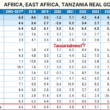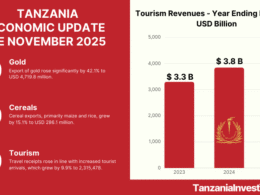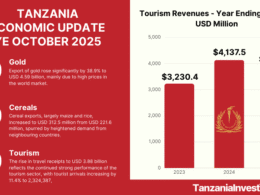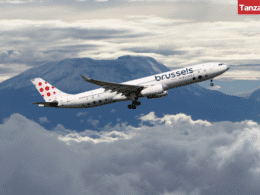H.E. Jakaya Mrisho Kikwete, President of the United Republic of Tanzania, addresses the challenges for East African Tourism.
It is an open secret that tourism is an important sector for the economies of the East African Community member states. Also, East Africa is an important tourist destination in the world.
The tourism and hospitality industry are key pillars of the region’s socio-economic development and poverty reduction endeavours. Tourism has an incredible multiplier effect, better than many other sectors.
In 2010, the region received about 4.3 million tourists and holiday makers from abroad. This is a small number when it is compared to the world’s total of over 900 million tourist arrivals in 2010. This means that we can do better.
We have earned a substantial amount of foreign exchange from tourist activities: indeed this industry has made a significant contribution to the incomes of our respective nations and peoples.
It is an important source of tax revenues to our governments. For example in 2011, the sector accounted for 17 per cent of the Gross Domestic Product (GDP) in Tanzania; 5.7 per cent of the GDP in Kenya; 4.0 per cent of the GDP in Uganda; 3.3 per cent of the GDP in Rwanda and 3.6 per cent of the Burundian GDP.
In addition, there are many East Africans whose livelihood solely depends on tourism. Tourism, therefore, is a key sector which deserves the attention of our governments, the business community and the people of East Africa.
Given the potential that the region has in terms of tourist attraction I am sure the industry can grow even further if we take the right steps. Specifically we need to identify what more needs to be done that we have not.
We have to figure out what challenges need to be overcome. The first challenge we need to deal with is inadequate skilled manpower and expertise in tourism management and in the hospitality industry.Skilled manpower and experts that would transform the existing potential of our region into meaningful economic gains, that is who we need.
A region may have natural beauty and all imaginable tourist attractions, but without appropriate expertise to exploit that potential the region and its people will not be able to enjoy the fruits of our God-given gifts.
The second challenge is the lack of adequate supportive physical and institutional infrastructure to promote tourism in the region. Our physical connectivity in terms of roads, air and waterways are not well developed and in some places poor or non-existent.
Hotels, restaurants and other tourist services are inadequate. Some of these hotels and related services are not of good quality. In this regard, therefore, we need to work together to overcome these shortcomings and improve regional connectivity and services to tourists.
This, we cannot do alone as governments. We need to encourage both the domestic and international private sector to rise to challenge and to invest in the tourism sector.I have in mind expanded air and surface transport, increased numbers of high standard hotels, tourism marketing and enhanced cooperation among key stakeholders.
Regarding inadequate supportive institutional frameworks, we need to work together to create strong domestic and regional institutions that would promote tourism in its totality.
The promotion of the East African region as a common destination is one matter that would need our utmost attention. There is no need to compete and scramble for the same market. In my view, we stand to benefit more by working together and forging alliances instead of competing and creating rivalries. This is totally unnecessary.
Indeed, several initiatives have been discussed and some are already being undertaken at regional level to promote the tourism sector. But we need to do more. We could do joint promotion of the East African tourism market.
Our governments, embassies and stakeholders could do joint marketing in the tourist source countries. We could go to international tourist fairs together and jointly sell East African tourist attractions.
There is also the proposed issuance of a single tourism visa for the East African tourist market. This is another way to promote the community as a single tourist destination and create synergy in the tourism industry across the region.
It is a great idea which can boost tourism in East Africa. However, we must make sure that it is properly structured and all the important issues are carefully considered before this innovative idea is implemented.
We will need, for example, to address revenue sharing mechanisms; security issues; technological needs; manpower requirements and ensure that the required capacities are in place.
Besides this, we should also address the issue of flights and air fares from the major tourist source markets to our region. Africa is not well served by global airlines and fares are higher for similar distances in other regions.
This in some ways acts as an obstacle to growth of the tourism sector in our countries. Besides developing our own airlines, we need to do more to encourage major airlines to increase flights and reduce fares.
H.E. Jakaya Mrisho Kikwete is the President of the United Republic of Tanzania.











